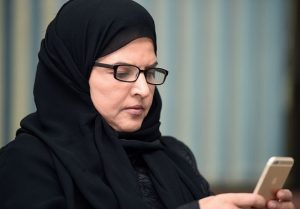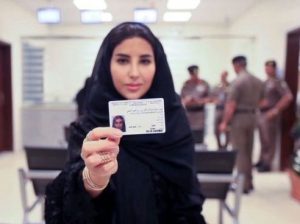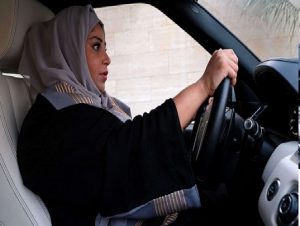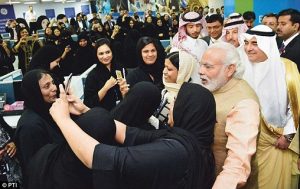14 July, 2019
By SJA Jafri + Wall Street Journal
RIYADH/ MELBOURNE: The Saudi regime does not represent Islam while the rulers of Kingdom of Saudi Arabia (KSA) do not believe in humanity, Islamic values and there is no concept of human rights in KSA; said Jamal Khashoggi, a Saudi citizen and the senior journalist worked for Washington Post told ‘this correspondent’ {SJA Jafri, Bureau Chief of Australia for Messenger, (a well known, most famous, largely circulated and credible English daily, whose website has been either hacked or blocked after Jamal’s assassination ‘officially)} just before a couple of weeks from his martyrdom into the KSA’s Consulate in Istanbul, Turkey on 2nd October, 2018.
 During an informal and ordinary communication Khashoggi further revealed that the KSA has already been issued the death warrant for you (this correspondent) and the said orders will not only be implemented in KSA but also in Pakistan or anywhere else even if you move to Australia, United Kingdom, USA or Canada and the Saudi intelligence agencies/ agents are searching you (this correspondent) since many days.
During an informal and ordinary communication Khashoggi further revealed that the KSA has already been issued the death warrant for you (this correspondent) and the said orders will not only be implemented in KSA but also in Pakistan or anywhere else even if you move to Australia, United Kingdom, USA or Canada and the Saudi intelligence agencies/ agents are searching you (this correspondent) since many days.
Responding to a question, he firmly confirmed that an official letter has been issued in this continuation for your (this correspondent) beheading (like me/Jamal Khashoggi) which has also delivered to the Saudi Embassies and consulates/ mission in Pakistan, Afghanistan, India, Iraq, Syria, Kuwait, Bahrain, Qatar, UAE and other countries so, you must have to be careful and do not try to contact with me as well as any of your friend, family member or journalist fellow while he (Jamal Khashoggi) also advised and discussed many other top secret personal, professional and family matters those are nor relevant with this story which flashed by the Wall Street Journal (WSJ).
 WST reveals that Saudi Arabia is planning this year to loosen restrictions on women’s ability to travel without a male guardian’s permission, officials and people familiar with the matter said, in a step away from the system of male domination deeply rooted in Saudi society.
WST reveals that Saudi Arabia is planning this year to loosen restrictions on women’s ability to travel without a male guardian’s permission, officials and people familiar with the matter said, in a step away from the system of male domination deeply rooted in Saudi society.
The plan would end guardianship laws pertaining to travel for men and women over 18 years old, allowing them to leave the country without the consent of a designated male family member, the people said. Currently, women of any age and men under 21 need a guardian’s permission to travel internationally.
The approach would leave in place laws requiring a guardian’s consent for women to marry, leave prison or even exit a shelter for abuse victims, the people said.
The move to change guardianship follows international scrutiny after a series of young Saudi women fled the country and sought asylum, complaining the kingdom’s laws and customs made them slaves to male relatives. Human-rights groups say the guardianship laws turn women into second-class citizens, depriving them of basic human and social rights and enabling abuse against them.
 Saudi authorities this year tasked a government committee with revamping guardianship laws. A senior Saudi adviser not authorized to speak publicly said the travel restrictions would be changed this year as a result of the committee’s work, saying the directive had come “from the top.”
Saudi authorities this year tasked a government committee with revamping guardianship laws. A senior Saudi adviser not authorized to speak publicly said the travel restrictions would be changed this year as a result of the committee’s work, saying the directive had come “from the top.”
“There is no question that the leadership, the government and the people want to see this system changed,” said a Saudi royal family member familiar with the plan. “The current discussion is about how to make this happen as soon as possible without causing a stir.”
Saudi Crown Prince Mohammed bin Salman, 33 years old, has tried to make empowering women an important theme running through his efforts to modernize his kingdom. He has lifted a ban on women driving, suggested that women no longer need to wear traditional neck-to-toe dresses called abayas and curbed a religious police force that often harassed and even jailed women for how they dressed.
 Prince Mohammed has been noncommittal, however, about changing guardianship laws, saying it was up to Islamic scholars to study. And he has cracked down on women who have criticized the government’s position on women’s rights.
Prince Mohammed has been noncommittal, however, about changing guardianship laws, saying it was up to Islamic scholars to study. And he has cracked down on women who have criticized the government’s position on women’s rights.
In May last year, a month before the crown prince officially lifted the ban on female driving, authorities in Saudi Arabia arrested a group of female activists who had become well-known for lobbying the government to allow women to drive and abolish the guardianship system. Those detained include Loujain al-Hathloul, best known for having defied the driving ban in 2014 and spending 73 days in jail as a result. Ms. Hathloul remains behind bars.
 Human-rights groups have long complained about Saudi laws they say repress women. Some international companies have taken up the issue, in more private settings, as they examine whether to capitalize on an economic opening Prince Mohammed is engineering. The laws in place would make it difficult for foreign companies to attract Western women to work in Saudi Arabia, should they open an office there.
Human-rights groups have long complained about Saudi laws they say repress women. Some international companies have taken up the issue, in more private settings, as they examine whether to capitalize on an economic opening Prince Mohammed is engineering. The laws in place would make it difficult for foreign companies to attract Western women to work in Saudi Arabia, should they open an office there.
While some other Muslim countries have male-guardianship traditions, Saudi Arabia goes the furthest in enshrining these customs in law and carrying them out in practice, drawing on its ultraconservative interpretation of Islam and one phrase in particular from the Quran: “Men are in charge of women by [right of] what God has given one over the other and what they spend (for maintenance) from their wealth.” Some Saudi scholars have gone as far as saying a woman shouldn’t leave her house except with her husband’s permission.
 Changing these laws and customs isn’t easy. While they are generally unpopular in more cosmopolitan Saudi cities such as Riyadh and the Red Sea port of Jeddah, the rules are an important part of life in more conservative areas, and the government would face intense opposition if it moved to undo the guardianship system on a broader scale. Even loosening the rules on foreign travel could fuel disapproval if it leads to many women leaving the country.
Changing these laws and customs isn’t easy. While they are generally unpopular in more cosmopolitan Saudi cities such as Riyadh and the Red Sea port of Jeddah, the rules are an important part of life in more conservative areas, and the government would face intense opposition if it moved to undo the guardianship system on a broader scale. Even loosening the rules on foreign travel could fuel disapproval if it leads to many women leaving the country.
Some guardianship rules aren’t written into law and are simply widely enforced social customs, such as forcing women to demonstrate their guardian’s consent to work, get health care and conduct transactions such as renting an apartment, according to a 2016 Human Rights Watch report.
 Restrictions on women in the kingdom were highlighted in early January, when 18-year old Rahaf Alqunun, fleeing her family, barricaded herself in a hotel room in Bangkok and said she feared imprisonment if she was sent back home. She was later granted refugee status in Canada. Depending on how the proposed changes are implemented, they could protect women like Ms. Alqunun from facing charges of disobedience in Saudi courts.
Restrictions on women in the kingdom were highlighted in early January, when 18-year old Rahaf Alqunun, fleeing her family, barricaded herself in a hotel room in Bangkok and said she feared imprisonment if she was sent back home. She was later granted refugee status in Canada. Depending on how the proposed changes are implemented, they could protect women like Ms. Alqunun from facing charges of disobedience in Saudi courts.
The government has allowed more space to discuss the flaws of the guardianship system in the country’s heavily regulated news media in the past year. The topic was prominently discussed on a popular Saudi talk show and was the subject of a front-page report this week in Jeddah’s Okaz newspaper.
 Word of the government’s plan drew mixed reactions from young Saudi women. Huda, a 30-year-old from Jeddah, called the plan “a step in the right direction.”
Word of the government’s plan drew mixed reactions from young Saudi women. Huda, a 30-year-old from Jeddah, called the plan “a step in the right direction.”
“It is absolutely crucial if we want to move forward as a country,” she said. “I am hopeful.”
Ruba, a 29-year-old communications professional in the Eastern Province, was skeptical that the government would follow through on its plan. “Is this a publicity stunt?” she asked. “I need to read the fine print. Where’s the catch, you know?”
Others said the plan didn’t go far enough.
“I think its crap because it should apply to work and marriage” as well, said Farah, 30, of Jeddah. “Why should any woman need guardianship over traveling, working or getting married? Many women are being treated unfairly by their spouses, brothers and fathers who take advantage of guardianship.”
 Some took to Twitter to defend the guardianship system. One under the handle Mrs. Noora, said that she trusted her father to make decisions for her and that she believed she needed a guardian under Islam.
Some took to Twitter to defend the guardianship system. One under the handle Mrs. Noora, said that she trusted her father to make decisions for her and that she believed she needed a guardian under Islam.
“I come from a family that is liberal within limits,” she wrote. “But I have never and will never accept to be my own guardian.”
Conclusively, at last, the faces of Hippocratic rulers of KSA are being discovered frequently because of the exclusive stories of Martyred Jamal Khashoggi’s and Messenger’s reporting, hence, the credit of rapid changes in Saudi society directly goes to Messenger and Washington Post, sources concluded
 Pressmediaofindia
Pressmediaofindia




